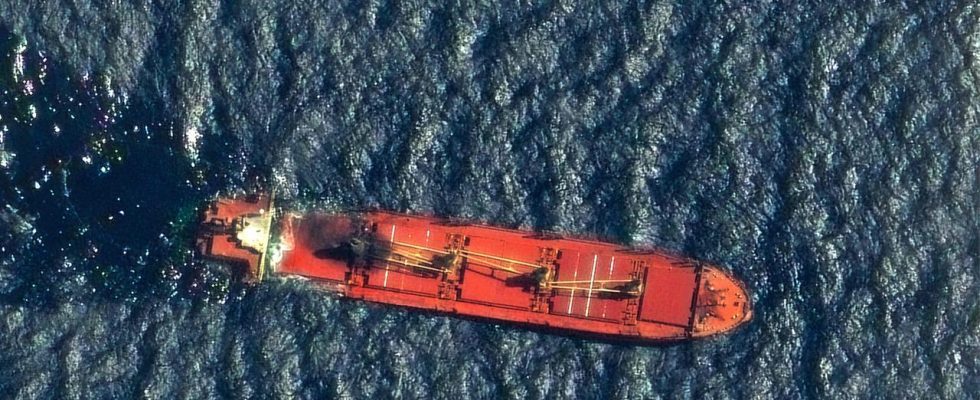The “Rubymar” is the first merchant ship to sink in the Red Sea after a missile attack by the Houthis. The militia shelled the freighter in mid-February and an oil slick formed. Now things could get even worse.
A cargo ship attacked by the Islamist Houthis almost two weeks ago has sunk in the Red Sea. The “Rubymar” was badly damaged by rocket fire and filled with water. As a result, a kilometer-long oil slick formed off the coast of Yemen. The ship’s crew was disembarked shortly after the attack.
The internationally recognized government in Yemen said the “Rubymar,” which was loaded with 41,000 tons of fertilizer, sank on Friday evening in stormy seas. A local military representative also confirmed to the AP news agency that the freighter had sunk. According to the tracking service Vesselfinder, the “Rubymar” flew the flag of Belize.
Fear of one Environmental disaster
Yemeni Prime Minister Ahmed Awad Bin Mubarak wrote on X that he regretted the development, which would lead to an environmental disaster in the region.
A few days ago, the US military also warned of an increase in the existing effects on the environment.
Ship sank for the first time after Houthi attack
It is the first time the Houthis have caused a ship to sink since they began attacking ships in the region. The militia allied with Iran says it wants to force an end to the Israeli attacks in the Gaza Strip by shelling merchant ships in the Red Sea.
Several Western countries, including the USA and Great Britain, are involved in operations to counter the attacks. The EU has also launched a military operation to protect merchant shipping in the Red Sea, in which Germany is participating with the frigate “Hessen”.
The sea route through the Red Sea and the Suez Canal is one of the most important trade routes in the world. Because of the Houthi attacks, large shipping companies are increasingly avoiding the shortest sea route between Asia and Europe – with significant effects on the global economy.

